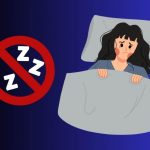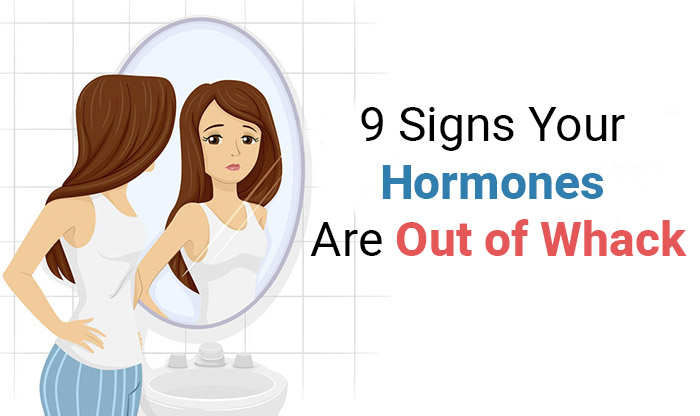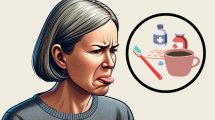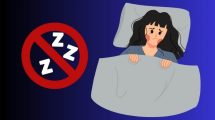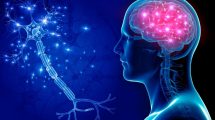Although hormonal imbalance usually shows up as we age, the factors that relate to the modern world like chemically processed foods, environmental pollution, synthetic estrogens in the skin care products, and vitamin deficiencies, leave both women and men of all ages prone to frequent hormonal spikes.
The worst thing about it is that hormonal imbalance may be hard to spot or be easily confused with the other condition or disease. The hormonal chaos in the body can negatively affect your overall health, long before you even realize your hormones are out of whack. Even doctors often dismiss the symptoms of hormonal imbalance or attribute them to another disease.
So how can you be sure that your hormones are in check? The following signs are more likely to be fairly great indications that something is wrong with your hormones:
Join Agogo Newsletter
And get Updates for Better Health.
1.You feel completely exhausted all the time
We all suffer from fatigue once in a while and often feel tired at the end of the day, but when you have hormonal imbalance, you’re literally exhausted all the time.
You feel tired in the morning, during the day, and when you go to bed. You can wake up in the middle of the night and be unable to even go to your bathroom. The stress hormone called cortisol is the major culprit of it.
The high levels of cortisol in the body lead to chronic stress, which then triggers a chronic fatigue. The fluctuating levels of this stress hormone tax the adrenals, making you feel exhausted every minute of your daily life. When your adrenals go out of control and stop functioning properly, you start feeling foggy, lethargic, tired, moody, and depressed.
2.Rapid weight gain or weight loss
Your hormones take an active part in regulating your metabolism, especially how you burn or gain calories, as well as store them as fats.
When your hormones are out of whack, you may start experiencing rapid and unexplained weight fluctuations – in most cases, it’s weight gain. Even though adrenal glands or malfunctioning thyroid are the leading causes, other hormones might be to blame.
If you’re having trouble losing weight, sometimes balancing hormones is enough to get back on your weight track. If you’re experiencing a rapid weight loss with no obvious reason, this also may be a sign your hormones are running the show.
3.Muscle atrophy
There are a few hormones, such as testosterone, insulin-like growth factor 1 (IFG-1), and growth hormone called somatotrophin or somatrophin, which are all responsible for proper growth and maintenance of the body’s muscle mass.
While these hormones are the main contributors, thyroid and insulin hormones play significant roles too.
When you experience the misbalance of the hormones, the ability of your body to digest and process all types of proteins gets weaker. This can cause the loss of muscle mass or muscle atrophy.
Although the loss of muscle mass can be caused by a range of other factors, in most cases hormonal imbalance is to blame. Muscle atrophy can be prevented by sticking to a regular workout routine that consists of light cardio and weight training.
Moreover, incorporate more plant-based protein in your daily menu and reduce your consumption of simple carbs, such as sugary foods, white rice, and white bread. Staying hydrated and getting enough sleep are two important habits to follow, as well.
4.Low libido
The statistics show that around 70 percent of a reduced libido is due because of hormonal imbalance. The reproductive system highly depends on hormones to support a proper function. Once the hormones are out of balance, a weakened or entire loss of sex drive can happen. Lifestyle, dietary, and environmental factors can also contribute to keeping the reproductive hormones in check in women and men alike.
The dominance or deficiency of estrogen is more often to blame for low sex drive, albeit your cortisol levels and thyroid health can play a key role too. Add to sleep deprivation and high stress levels and getting intimate will become the last thing you will want to think about at the end of the day.
5.Mood swings and mental disorders
The mood swings aren’t only part of the monthly cycle. The hormonal imbalance is one of the culprits of the mood swings.
Hypothyroidism, over-worked adrenals, serotonin deficiency, GABA imbalance or over-abundance of dopamine can also trigger your emotions. Mood swings, anxiety, irritability, depression, and other mental disorders can be a result of hormonal imbalance.
Women may have these mood issues due to menopause, so don’t take any drugs without consulting a doctor.
6.Excessive sweating
Hypo- and hyperthyroidism can manifest as excessive sweating. It’s one of the most overlooked symptoms of hormonal imbalance that is generally caused by a frequent use of birth control medications or menopause.
Vitamin supplements can help to manage profuse sweat, but oftentimes more serious medications are required to regulate the hormones. Women are more prone to this issue than men.
7.Severe cravings (some of them are truly weird)
There are tons of food cravings that occur due to nutrient deficiencies and a growing number of health issues, including hormonal imbalance.
For example, when the hormones are out of control in the pancreas, thyroid, and adrenals, you start experiencing the cravings for sugary and salty foods – and sometimes for foods that you’ve never eaten before. Moreover, you may also have the feelings of intense hunger even when you’re not hungry at all.
Related: What Your Frequent Cravings Say about You
8.Digestive issues
Hormones take a significant part in healthy digestion. When you’re experiencing an imbalance, you might start facing a number of digestive woes, including discomfort, bloating, constipation, or diarrhea.
In some cases, you might also have burping or excessive flatulence, nausea, indigestion, and itching in the abdominal area. Of course, problems with the digestive tract can be caused by other factors.
9.Insomnia
Your circadian rhythm that manages the energy levels during the day and lets your body know that it’s time to go to bed is directly connected with your endocrine system.
That’s why hormonal imbalance usually results in sleep disorders, including insomnia. Unless you’ve been suffering from chronic sleep disorders for a long while, if you’ve noticed that you have difficulty falling asleep, your hormones might be a reason for it.
Read More: 20 Easy Ways to Fall Asleep Faster
How to Fix Hormonal Imbalance at Home
It’s not a secret that medications that help to regulate hormones have a host of side effects. If you want to avoid them, consider balancing them naturally. Sure, it doesn’t mean you should skip your doctor’s appointment.
1.Drop refined carbs and sugar
Refined carbs and sugar have been culprits for a growing number of diseases and conditions. Minimizing or avoiding them is essential for balancing your hormones.
Not to mention that it also reduces the risk of diabetes, obesity, and other illnesses. Researchers have found that fructose aids in promoting insulin resistance and increasing insulin levels, particularly in obese and overweight people with pre-diabetes or type 2 diabetes.
Fructose makes up about half of the types of sugars, including natural forms such as maple syrup and honey, in addition to refined table sugar and high-fructose corn syrup.
A study conducted by the researchers from the University of Minnesota that involved individuals with pre-diabetes has a similar elevation in the insulin resistance and insulin levels whether they ate 50 grams of high-fructose corn syrup, sugar, or honey.
Stick to a moderate or low carb diet that consists of whole foods and healthy fats in order to keep your hormones at bay and ward off any complications hormonal imbalance causes.
2.Munch on protein
Eating a moderate amount of healthy protein is vital for your health. Since the body can’t produce a dietary protein that provides the essential amino acids, you should incorporate it in your daily diet to maintain and must be consumed every day in order to support skin, bone and muscle health. Plus, protein can affect the release of the hormones that manage hunger and cravings.
Multiple studies have concluded that consuming protein helps to reduce the levels of ghrelin, the “hunger hormone” as well as stimulate the production of the hormones, which help you curb craving and feel full faster. The foods rich in protein are eggs, almonds, oats, cottage cheese, yogurt, broccoli, milk, tuna, quinoa, lentils, Ezekiel bread, pumpkin seeds, Brussels sprouts, and peanuts, among the others.
3.Adaptogen herbs
The unique class of the healing plants, adaptogen herbs help to balance the hormones and ward off a number of illnesses, including chronic stress.
Apart from improving the immune system and fighting stress, studies show that adaptogens, particularly medicinal mushrooms, ashwagandha, holy basil, and rhodiola can help to support adrenal gland functions, lower brain cell degeneration, banish anxiety and mood swings, and improve thyroid function.
Ashwagandha is essential in balancing the hormones. It’s good for thyroid function since it helps to promote the free radical scavenging and prevent the cellular damage.
You can use ashwagandha to support an overactive or sluggish thyroid and to treat or ward off adrenal fatigue. When you experience a lot of mental, physical, or emotional stress, the adrenals can get overtaxed, leading to the imbalance of hormones such as progesterone, cortisol, and adrenaline.
Related: Adaptogens: Benefits, Sources, and Side Effects
4.Exercise regularly
Believe it or not, exercise plays a vital role in your hormonal balance. First of all, because physical activity aids in increasing insulin sensitivity and shedding the insulin levels.
Plus, exercise helps to lower the daily levels of stress, boost your energy levels diminishing fatigue, and overall maintain good health. You don’t have to buy a gym membership. A 30 minute walk or run or some sit-ups and squats are enough to keep your hormones in check.
5.Don’t undereat or overeat
Eating too little or too much food may cause hormonal shifts, which eventually lead to weight issues. Overeating lowers insulin sensitivity and increases the insulin levels, especially in obese and overweight people with an insulin resistance.
Consuming too little calories elevates the levels of the stress hormone called cortisol. Cortisol causes weight problems including obesity and bulimia. Eating healthy foods in moderation will help you keep a healthy hormonal balance and avoid any weight issues. Aim to consume an average1, 200 calories throughout the day for better health.
6.Explore essential oils
Keep your hormones in check naturally with the help of essential oils. The conventional body care products increase the levels of toxins in the body due to their content of the harmful chemicals, such as parabens, DEA, sodium lauryl sulfate, and propylene glycol.
As an alternative, you can buy or make natural body care products that include the ingredients such as essential oils, shea butter, coconut oil, and castor oil. Look for the products containing clary sage, fennel, lavender, thyme, and sandalwood essential oils.
Since natural products can break the bank, it’s best to make your own soaps, scrubs, and masks, adding the essential oil to your liking or needs.
7.Add probiotics
No matter the source of probiotics – either in a supplement form or from food – probiotics help to repair the gut lining, balancing the levels of hormones.
When you have indigestion and those poorly digested food pieces leak through the gut into the bloodstream, you may trigger a chronic inflammation that negatively affects the whole body, particularly glands such as the thyroid, which is vulnerable to a chronic inflammation.
If you have leaky gut, you’re more likely to be deficient in probiotics. These are healthy bacteria that help to stimulate the production and control of the key hormones, including leptin, ghrelin, and insulin.
If you don’t feel like taking a probiotic supplement, consider eating yogurt, sauerkraut, pickles, dark chocolate, and tempeh.
Related: 14 Best Probiotic Rich Foods You Should Be Eating More
8.Switch to green tea
One of the healthiest drinks worldwide, green tea is a simplest and most delicious way to treat hormonal imbalance.
It’s a rich source of metabolism-boosting caffeine and a potent antioxidant called epigallocatechin gallate that promotes optimal health. One to three cups of green tea per day will help you handle your hormonal imbalance without harsh medications.
Hormonal imbalance is tricky to spot and treat, but as soon as you notice any symptoms, see your doctor and talk about some natural treatments instead of drugs.
References:
- https://www.ncbi.nlm.nih.gov/pubmed/26338891
- https://draxe.com/10-ways-balance-hormones-naturally/
- https://www.healthcoachfx.com/hormonal-imbalances/



